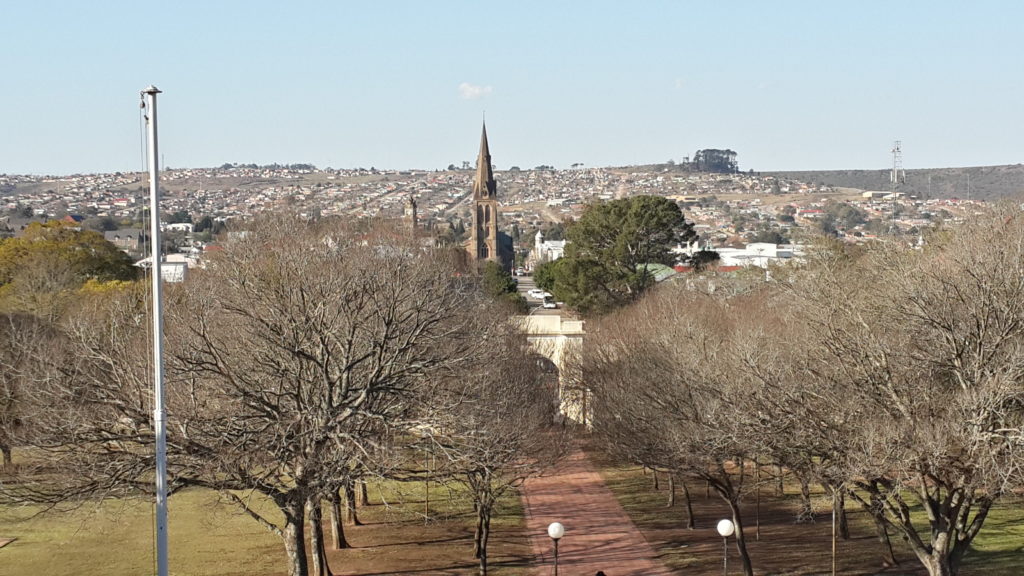The ANC’s election campaign has been slow to get on the road, but it’s now at full throttle – and last weekend’s event in the Indoor Sport Centre, launching the Department of Women’s Sanitary Dignity Programme, also served as the festive launch for a campaign that will build up to the visit of President Cyril Ramaphosa to Makhanda (Grahamstown) for the National Freedom Day Celebrations on Saturday 27 April.
The fact that we have a constitutional democracy that has survived 25 years is something to celebrate. The fact that alongside the considerable positive achievements of our democracy, citizens’ constitutional rights have also been neglected or actively abused, is something voters can act on come 8 May.
Meanwhile, we can enjoy the resources that come our town’s way as we’re buffed and polished, ready to welcome a crowd of 15 000 from across the nation. Makhanda was chosen for the national event, partly because of the historical significance of the battle that took place at Egazini, west of Nathaniel Nyaluza High School, 200 years ago on 22 April.
In an interview with a team from the Institute for Justice and Reconciliation (which we’ll share with you online – and next week’s print edition) we asked many questions about the notions of reconciliation and justice. Like – haven’t we already been through this? But perhaps the most important question we asked was, what if we don’t go through this process of acknowledging the hurt of our past, and working to heal it?
The answer, they said, is too terrible to contemplate, and they touched on the rise of the far right, as evidenced by the mosque shooting in New Zealand.
Rhodes University this week commemorated the life and work of Professor Alexius Amtaika, who died in a car accident on 2 April. Associate Professor in the Department of Political and International Studies from 2018, and a member of the prestigious Mellon funded Inclusive Professoriate Programme at Rhodes, he taught, researched and published on democratisation, local government, civic duties and rights, socio-economic development and power.
In an earlier tribute to him, his colleagues quoted his own words: “In practical terms, my deeper and wider understanding of political concepts enables me to understand not only human behaviour, but also helps me when it comes to dealing with human beings and people in general, because politics is about social behaviour and the way humans interact.”
Grocott’s Mail was privileged to interact with Professor Amtaika during an interdisciplinary project funded by the Open Society Foundation and in subsequent meetings where we discussed how we could share his insights and expertise with our readers. That was barely a month ago.
Professor Amtaika cast light on complex political and social concepts in a way that is rare, and impossible to forget. What his colleagues wrote of him resonates: “Alex strongly believed in upholding and defending values and principles of participation, responsiveness, fairness, equality, justice, good governance and human rights. His humanist impulse showed in the way he related to his students, colleagues and the public at large.”
We understand what a loss his passing is to his colleagues, students, family and friends and share our condolences.
It was a privilege this week to witness Khutliso Daniels launch their Top 10 awards programme. Parents, grandparents, friends and neighbours shed tears of pride and joy as the top 10 in each grade, from Grade 8 to Grade 12, was individually called up to enjoy their achievement and moment of recognition. It was a moving reminder of the value of academic effort, and a community to support it.



